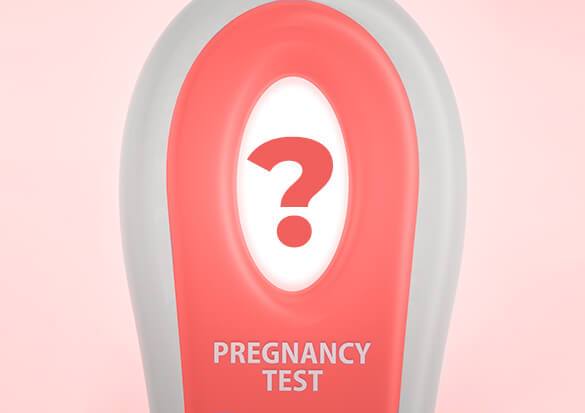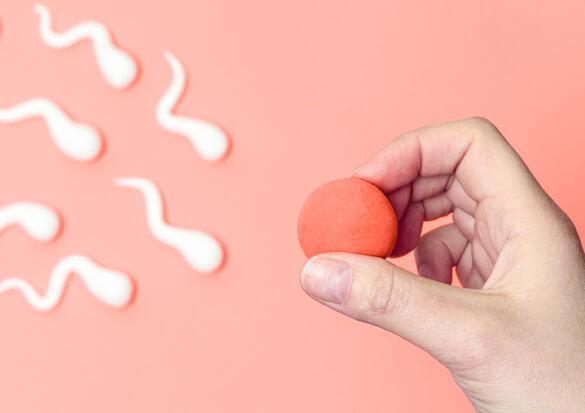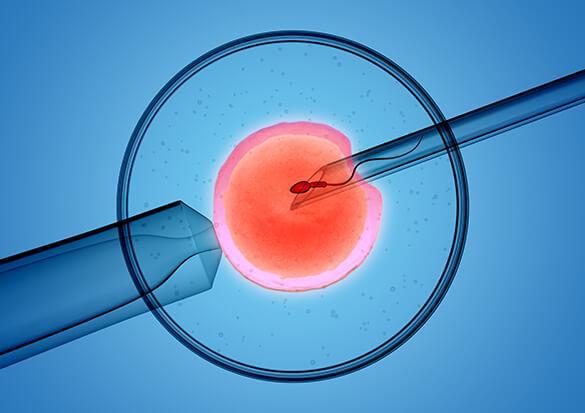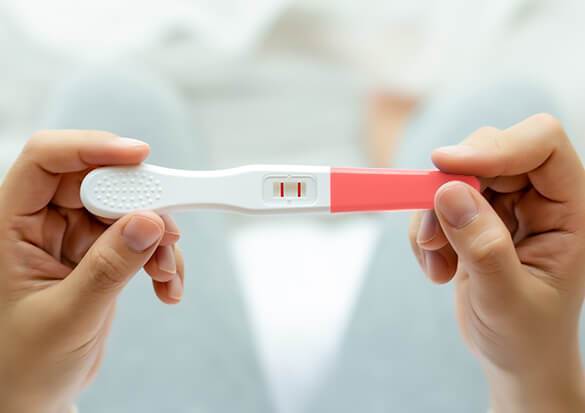What are the main causes of male infertility?
The causes of male infertility are not always obvious. In this section, we investigate the possible causes of male infertility and if there’s anything you can do about them.
A common myth about infertility is that it only affects women. But, infertility affects men and women equally.
Unlike infertility in women, men may not be aware of their infertility as the causes don’t often show symptoms.
In this blog, we look at the possible causes of male infertility, including:
- Hypogonadism
- Testicle complications
- Erectile Dysfunction (ED)
- Varicocele
- Overheating of the testicles
- Alcohol and drugs
- Medication
1. Hypogonadism
Hypogonadism, or testosterone deficiency (TD) in adult males, is defined as low levels of testosterone [1].
Men require sufficient levels of testosterone for physical and psychological wellbeing. As a man ages, the amount of testosterone in his body gradually drops. Some men develop depression, loss of sex drive, and other physical and emotional symptoms when they reach their late 40s to early 50s [2]. This is sometimes known as male menopause.
Male menopause can be misleading because it suggests that symptoms are the result of a sudden drop in testosterone in middle age, like that of female menopause, but this is not true.
Although testosterone levels fall with age, the decline is steady. Therefore, age itself isn’t necessarily the sole cause of a drop in testosterone.
There are many other potential causes of low testosterone.
Causes of low testosterone include [3]:
- Injury or infection of the testes
- Chemotherapy
- Disorders of the pituitary gland
- Alcohol abuse
- Kidney failure
- Obesity
- Extreme weight loss
- Medications including opioids and steroids
Some men may experience symptoms alongside low levels of testosterone.
Symptoms of hypogonadism can include [4]:
- Fatigue and lethargy
- Depression, anxiety, irritability
- Reduced sex drive, erectile dysfunction
- Decreased need to shave
- Reduced exercise tolerance and strength
- Excessive sweating and night sweats
- Poor concentration and/or memory
- Infertility
If you are concerned that low testosterone may be a factor in your infertility, speak with your doctor, and they will investigate your concerns further.
You can test your levels at home with our Testosterone Blood Test.
2. Testicle complications
The testicles produce and store sperm and, if damaged, can impact the quality of sperm. Issues with the testicles can range from a congenital problem (from birth) such as undescended testes, trauma, illness, or infection.
Previous surgery to the testicles and hernia repairs may also cause problems with the testicles.
Your doctor will need to examine you to diagnose testicular complications. They may suggest that you have an ultrasound scan and refer you to a specialist to determine whether a testicular complication is the cause of your fertility.
3. Erectile Dysfunction (ED)
ED, also known as impotence, is the failure to achieve an erection [5]. It is a widespread concern, especially in men over the age of 40, and can impact the ability to conceive.
Stress, tiredness, or drinking too much alcohol can all contribute to episodes of ED.
However, if it occurs frequently, you may have other underlying physical or emotional conditions.
Your doctor or local sexual health clinic will be able to investigate you for any physical and emotional problems and, where necessary, may suggest a referral to a psychosexual counsellor. Treatment for ED depends on the cause, but sometimes, medication may be the solution.
4. Varicocele
A varicocele is a cluster of enlarged veins in the testicles, similar to varicose veins in the legs, and can affect your sperm count.
Approximately 15% of infertile men are affected by varicocele [6] and it can be a significant cause of male infertility.
A varicocele inside the left testicle is more common than inside the right, and you may notice some symptoms, but they are not always present.
Symptoms of varicocele include:
- A difference in the size of the affected testicle
- Pain in the affected area
- Feeling as though your testicle is ‘a bag of worms’
If you suspect varicocele, your doctor will examine you and, if necessary, refer you for an ultrasound and check your sperm count.
If you have a normal sperm count, you may not require any treatment, but they may monitor you by repeating your tests every two to three years. If you have an abnormal sperm count, surgery may be offered, which can improve the quality of your sperm significantly within three to twelve months.
5. Overheating of the testicles
The testicles need to be kept at a lower temperature than the rest of the body to allow for optimum sperm production [7].
In some circumstances, your occupation or lifestyle can mean that your testicles are warmer than they should be, possibly impacting your sperm production.
It may not be practical to change your working environment, but if you can keep your testicles cool where possible, it will help to improve sperm quality.
To help keep your testicles cool, avoid the following:
- Avoid wearing tight underwear or lycra training shorts for long periods
- Limit time spent in hot baths or hot tubs
6. Alcohol and drugs
Drinking alcohol, especially if excessive, smoking, and using drugs such as marijuana or cocaine, can have a significant impact on your fertility [8]. If you are trying to conceive, it is advised to keep alcohol to a minimum and avoid binge drinking.
Smoking and drug abuse can deplete healthy sperm and make it difficult to conceive.
If you are planning on getting pregnant, see our section on how can I increase my chances of conception, for more information on healthy conception lifestyle choices.
7. Medication
Some medicines can affect your fertility. If you are taking prescribed medication, it is best to discuss with your doctor that you are planning on conceiving. They will be able to tell you if the medication you are on is safe for you whilst trying to get pregnant. If the medication isn’t safe, they may find an alternative option.
Never stop taking a prescribed medication without consulting your doctor first.
The medication and drugs that could affect your fertility are:
- Chemotherapy, which can sometimes, significantly reduce sperm production.
- Anabolic steroids can reduce sperm count and mobility and can also lead to hypogonadism. Some protein shakes have also been linked with poor sperm parameters.
- Sulfasalazine, which is an anti-inflammatory often used to treat conditions such as Crohn’s disease or rheumatoid arthritis. One of the possible side effects of taking this is that it may temporarily impact sperm count.
- Drugs, like marijuana and cocaine, can affect sperm production.
- Herbal remedies, such as root extract of the Chinese medicine herb Tripterygium wilfordii, can affect sperm production or reduce the size of your testicles.
What happens next?
If you’re trying to pregnant, and it’s not happening as quickly as you’d hoped, you’re not alone. We understand that trying to fall pregnant can be a stressful time for some couples so, to take the confusion out of finding the right test to investigate your or your partner's fertility status, we've created a handy Fertility Blood Test Buying Guide.
Fertility blood tests
Whether you are trying for a baby now or thinking about trying in the future, we have several fertility tests for each stage of your fertility journey.
Have a look at our range of Male Fertility Blood Tests, or, if you are unsure which test is best for you, go through our handy test finder.
References
- authors, A. and Lunenfeld, B. (no date) Recommendations on the diagnosis, treatment and monitoring of hypogonadism in men, Taylor & Francis. Available at: https://www.tandfonline.com/doi/full/10.3109/13685538.2015.1004049 (Accessed: November 21, 2022).
- (no date) NHS choices. NHS. Available at: https://www.nhs.uk/conditions/male-menopause/ (Accessed: November 21, 2022).
- Low testosterone (low T): Causes, symptoms & treatment (no date) Cleveland Clinic. Available at: https://my.clevelandclinic.org/health/diseases/15603-low-testosterone-male-hypogonadism (Accessed: November 21, 2022).
- Male hypogonadism: Symptoms, causes, and treatment (no date) Medical News Today. MediLexicon International. Available at: https://www.medicalnewstoday.com/articles/307634 (Accessed: November 21, 2022).
- (no date) NHS choices. NHS. Available at: https://www.nhs.uk/conditions/erection-problems-erectile-dysfunction/ (Accessed: November 21, 2022).
- Varicocele and male infertility (2018) Progyny. Available at: https://progyny.com/education/male-infertility/varicoceles/ (Accessed: November 21, 2022).
- How to improve male fertility (no date) Tommy's. Together, for every baby. Available at: https://www.tommys.org/pregnancy-information/planning-a-pregnancy/are-you-ready-to-conceive/how-improve-male-fertility#:~:text=The%20testicles%20(balls)%20are%20outside,to%20avoid%20overheating%20your%20testicles (Accessed: November 21, 2022)..
- Drugs, alcohol and trying to conceive (no date) Tommy's. Together, for every baby. Available at: https://www.tommys.org/pregnancy-information/planning-a-pregnancy/are-you-ready-to-conceive/drugs-alcohol-and-trying-conceive (Accessed: November 21, 2022).
Related tests
Struggling with low energy, reduced muscle mass, or low libido? This test measures total testosterone, the key male sex hormone that also plays a role in muscle strength, mood, and overall well-being in both men and women
- Results estimated in 2 working days
- 1 biomarkers
Finger-prick or Venous collection
Select testStay on top of your game with our advanced blood test for men
- Results estimated in 3 working days
- 44 biomarkers
Venous collection
Select test





